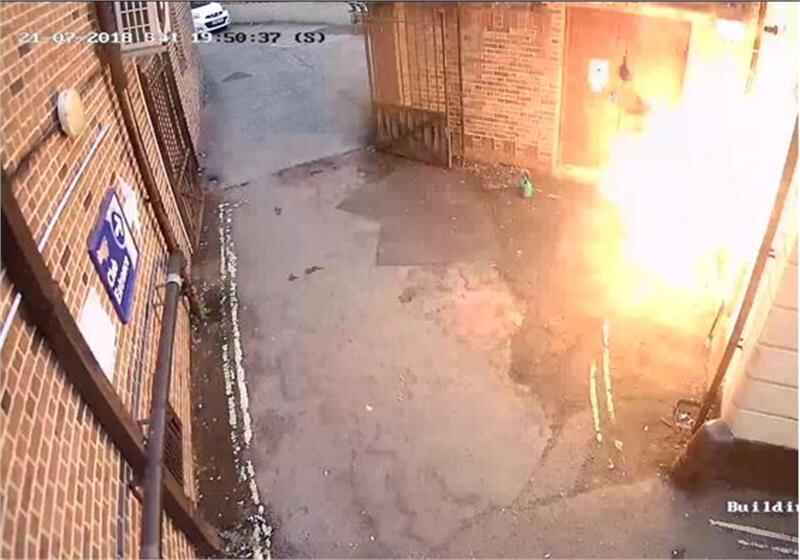CST Blog
Raed Salah loses appeal against deportation
27 October 2011
Sheikh Raed Salah, the leader of the northern branch of the Islamic Movement in Israel, has lost his appeal against deportation from the United Kingdom. Salah now has until the end of October to lodge a further appeal before deportation.
CST welcomed the Home Secretary's efforts to exclude Salah from the UK and this position has now been vindicated by the immigration tribunal. As has been widely reported, CST provided evidence of Salah's inflammatory and antisemitic statements to the Home Office and we are pleased that this evidence was accepted by the court.
The tribunal considered five pieces of evidence against Salah: a poem he had authored which we argued could incite hatred of Jews, but which Salah argued was not antisemitic; a speech in which he made a 'blood libel' slur against Jews, but which Salah claimed was not about Jews; Salah's inflammatory claims that Israel intends to destroy the al-Aqsa Mosque; the outstanding charges he currently faces in Israel for incitement to violence and to antisemitism; and Salah's conviction for funding organisations linked to Hamas.
When these allegations were first aired, Salah denied having written the poem; denied making the blood libel comment; denied facing any charges in Israel; and denied any links to Hamas. Only after CST provided evidence to the contrary, did Salah admit to having written the poem and making the blood libel comment, and argued instead that CST's interpretation of those texts was wrong. He also admitted his conviction for funding organisations linked to Hamas, but claimed this was for "charitable and humanitarian purposes."
Today's ruling (pdf) outlines the arguments presented on behalf of the Home Secretary and Salah on each of the five points of evidence, and then concludes that the evidence justifies his exclusion from the UK:
We conclude from all this evidence, viewed in the round, that the Secretary of State was right to conclude that the words and actions of the Appellant relied upon by the Respondent do come within the Prevent Strategy and therefore in accordance with the Secretary of State's policy do justify a conclusion that the Appellant's removal would be conducive to the public good.
[...]
We are satisfied that the Appellant has engaged in the unacceptable behaviour of fostering hatred which might lead to inter-community violence in the UK. We are satisfied that the Appellant's words and actions tend to be inflammatory, divisive, insulting, and likely to foment tension and radicalism.
[...]
[The Appellant] has admitted in criminal proceedings being involved with organisations used to fund Hamas, a group part of which is proscribed as being a terrorist organisation.
The ruling notes that Salah claims he is not antisemitic, and that his defence presented expert evidence that the poem is not directed at Jews in general but only at "those among them who aim at Israeli territorial expansion." However, the judges rejected Salah's claim that "what he has said can only be interpreted as expressing his opposition to oppression and injustice in general", because "our concern is with the impact of the poem and other sayings of the Appellant." The ruling goes on to point out that for the purposes of "unacceptable behaviour" under the Prevent strategy, the most important criterion is the impact of a person's words in fostering "hatred which might lead to inter-community violence in the UK", rather than whether they are intended to be racist. This follows existing legislation against incitement to racial hatred, where the impact that a person's words have on their audience is given the greatest weight.
While the ruling did not rule specifically on whether Salah's poem and blood libel comment were antisemitic, it clearly accepts that they have the potential to incite antisemitism in the UK. CST has repeatedly warned of the potential antisemitic impact that extremist preachers and activists from overseas can have on attitudes towards Jews amongst some British Muslims, and the damaging effect this has on wider social cohesion. Today's ruling supports this concern, which we welcome.
Salah's defence called two witnesses, Professor David Miller of the Spinwatch campaign group and former police officer Bob Lambert, both of whom contested CST's expertise in this area. The judgement notes their claim that CST "failed to distinguish between anti-Semitism and criticism of the actions of the Israeli State and therefore gives an unbalanced perspective", but that both Miller and Lambert accepted it was not "improper for the Secretary of State to seek the views of the CST in this matter". Needless to say, CST totally rejects the claims of Miller and Lambert that we fail to distinguish between antisemitism and criticism of Israel. Our Antisemitic Incident Reports and Antisemitic Discourse Reports (both available here) lay out this distinction in great detail. However, we were not afforded an opportunity to defend CST's position during the hearing and no witnesses were called by the Home Secretary's lawyers to counter their claims. Consequently, CST's rejection of Miller and Lambert's 'expertise' was not heard in court and is not in the ruling.
In addition, it was alleged before the hearing by Salah's lawyers that CST had provided "doctored" material to the Home Office regarding Salah. CST completely rejects this wholly untrue claim, which is not mentioned in today's ruling. It appears to be something given to journalists writing about the case rather than a meaningful claim relied on in court by Salah.
After coming to government last year, the Home Secretary widened the "unacceptable behaviour" guidelines under which foreign nationals could be excluded from the UK, so that they include the fostering of hatred between communities as well as directly inciting violence. This has nothing to do with silencing Palestinian voices, as some have bizarrely claimed; the new guidelines will hopefully prove effective in keeping far right anti-Muslim agitators out of the UK, just as much as Islamist anti-Jewish ones. This was an important test case for the new guidelines, and we are pleased that the immigration tribunal has endorsed them.
UPDATE: The full ruling is now available for download here (pdf), and linked to in the post above.

